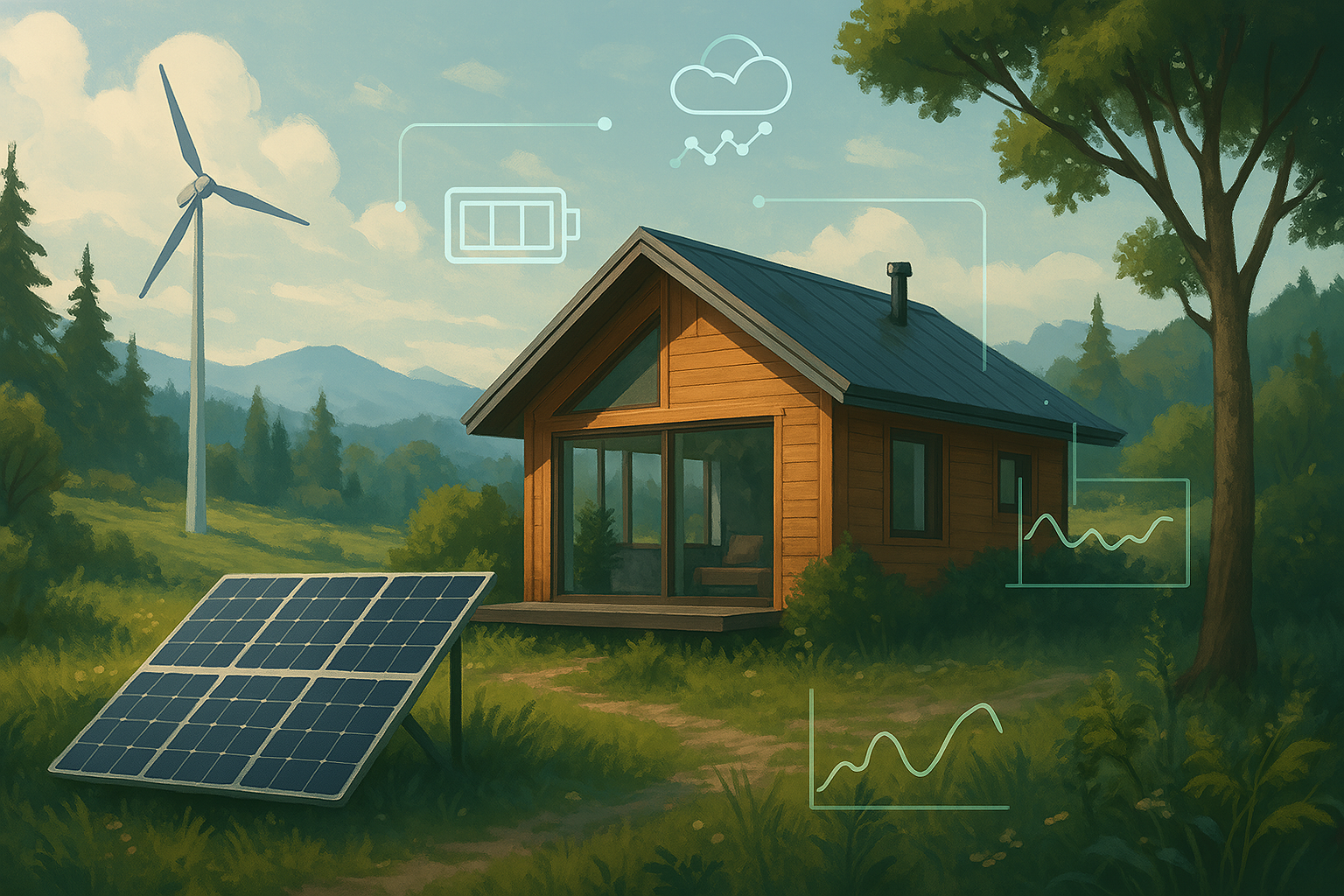As off-grid living continues to grow in popularity, so does the technology that makes it possible. In 2025, one of the biggest game-changers in the world of self-sufficient energy is artificial intelligence (AI). Once considered a far-off concept limited to Silicon Valley startups, AI is now making its way into the solar panels, batteries, and smart systems powering remote cabins, vans, and eco-homes around the world.
So, how exactly is AI changing the game for off-grid dwellers? Let’s break it down.
1. Smarter Battery Management
One of the most exciting ways AI is impacting off-grid living is through intelligent battery management. Traditional solar setups often waste energy or fail to store enough for overnight use. AI-powered controllers can now analyze energy usage patterns and weather forecasts to decide exactly how much energy to store, when to discharge batteries, and how to optimize lifespan and performance. This means more efficient use of every ray of sunshine.
2. Predictive Maintenance and Alerts
Gone are the days of finding out your system failed after it’s already too late. AI-powered platforms are using real-time diagnostics to monitor system health and performance. They can alert users before something goes wrong—whether it’s a panel underperforming, a loose wire, or a battery nearing the end of its life cycle. This is crucial for those living in remote or harsh environments where downtime isn’t an option.
3. Weather-Driven Energy Planning
AI can now analyze local weather trends and forecasts to automatically adjust energy usage and storage plans. For example, if cloud cover is expected over the next few days, your system may prioritize storing extra energy today. Conversely, if sunny skies are coming, it might shift usage patterns to conserve battery health. This kind of predictive adaptation helps off-grid setups feel almost self-managing.
4. Voice Control & Integration with Smart Assistants
AI is also making off-grid tech more user-friendly. Many newer systems can now be integrated with smart assistants like Alexa or Google Assistant. This allows users to control lights, appliances, or check system status using simple voice commands. It’s a small but impactful quality-of-life upgrade for those living off the grid.
5. Adaptive Learning for Efficiency Gains
Perhaps the most exciting frontier: AI systems that learn. Over time, these systems gather data about your unique energy needs, climate patterns, and usage habits. They use this to continually refine how your energy system operates. The longer you live off-grid with AI support, the smarter your setup becomes.
The Bottom Line
AI is no longer a luxury add-on—it’s becoming an essential part of off-grid energy management. As 2025 unfolds, expect more tools, apps, and systems to adopt AI features, making sustainable living easier, smarter, and more resilient.
Whether you’re already off the grid or planning your first setup, it might be time to think beyond panels and batteries. With AI in the mix, off-grid energy just got a serious upgrade.
Stay curious. Stay wild.








